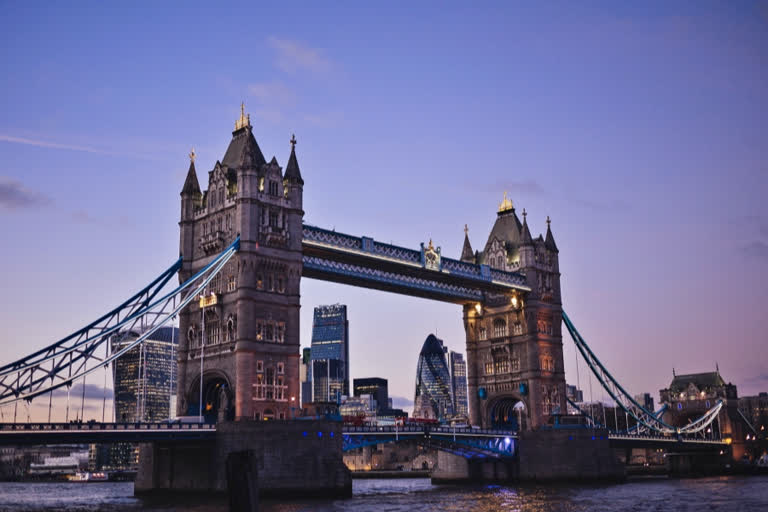London: Transparency advocates are calling on Britain to tighten the country's defences against money laundering and tax avoidance after a massive leak of financial data showed how London is a key destination of choice for some of the world’s richest and most powerful people to conceal their cash.
The cache of almost 12 million files shows how wealthy people around the world reportedly set up offshore companies to buy property and avoid taxes.
Foreign individuals identified as beneficiaries of these types of offshore accounts in London include Jordanian King Abdullah II, Azerbaijan’s President Ilham Aliyev and associates of Pakistani Prime Minister Imran Khan. Abdullah has denied any impropriety and Khan tweeted that his government would investigate anyone mentioned and take appropriate action if wrongdoing is found. Aliyev hasn't commented.
The leaked financial data, dubbed the “Pandora Papers,” was published Sunday by the International Consortium of Investigative Journalists and its media partners, including Britain’s Guardian newspaper and the BBC.
Though the purchases are legal under British law, they highlight the complicated — and often anonymous — financial practices wealthy individuals use to avoid tax, far removed from the everyday experience of most of the British population.
Also read:Pandora Papers: Hidden riches of world leaders 'exposed' in 'unprecedented' leak
London is a go-to for the rich and powerful because it's home to a sophisticated ecosystem of businesses that can help in the process, including creative wealth management firms, high-end lawyers and long-established accounting firms.
A 2019 analysis by transparency group Global Witness indicated that around 87,000 properties in England and Wales were owned by anonymous companies registered in tax havens.
It said that 40% of the anonymously owned properties identified were in London and that the total value of the properties was likely to be more than 100 billion pounds ($135 billion). Popular areas were said to include the boroughs of Westminster, where the U.K. Parliament is located, Camden, and Kensington and Chelsea.
The London property market has for years struggled to shake off a reputation for playing a central role in how rich people around the world seek to hide and accentuate their wealth, with many prime properties in the heart of the city owned by non-nationals. Russian oligarchs have been high-profile purchasers of London properties in recent years, for example.
For decades, authorities in the U.K. have pushed a light touch approach to regulation in order to attract foreign capital and talent. Critics say that has been a magnet for tax avoidance, which can be legal, as well as more criminal activities, including money laundering.
Duncan Hames, policy director at the campaign group Transparency International U.K., said the disclosures should act as a “wake up call” for the government to deliver on long-overdue measures to strengthen Britain’s defences against what he termed “dirty money.”
